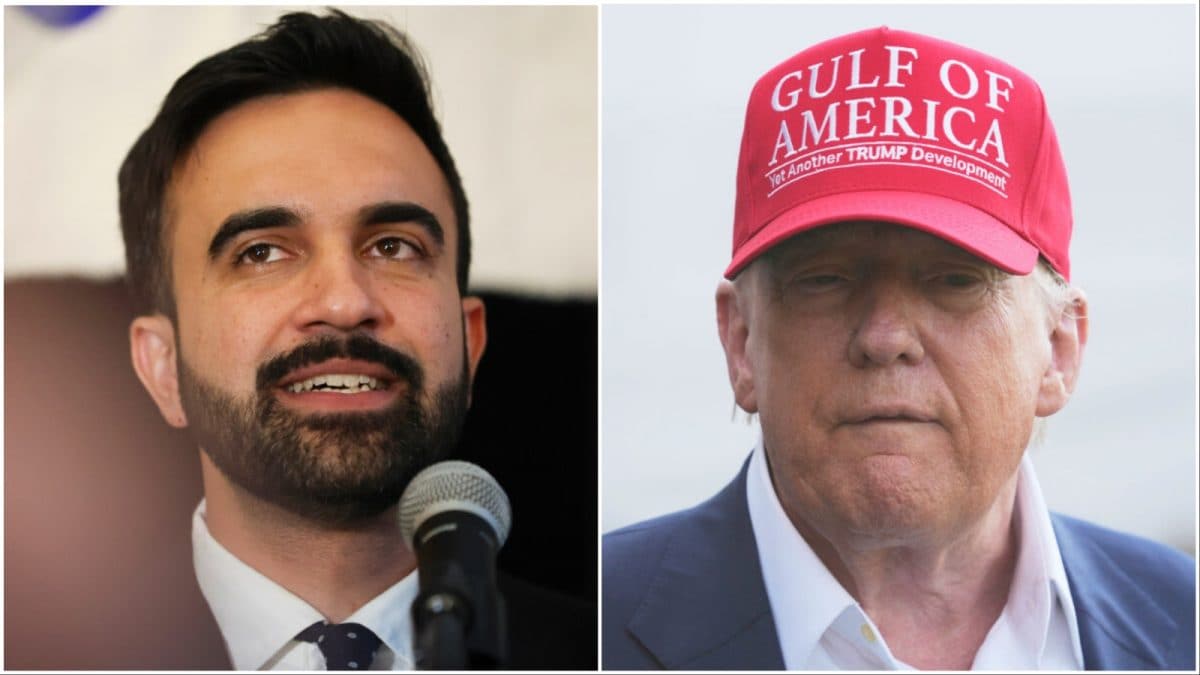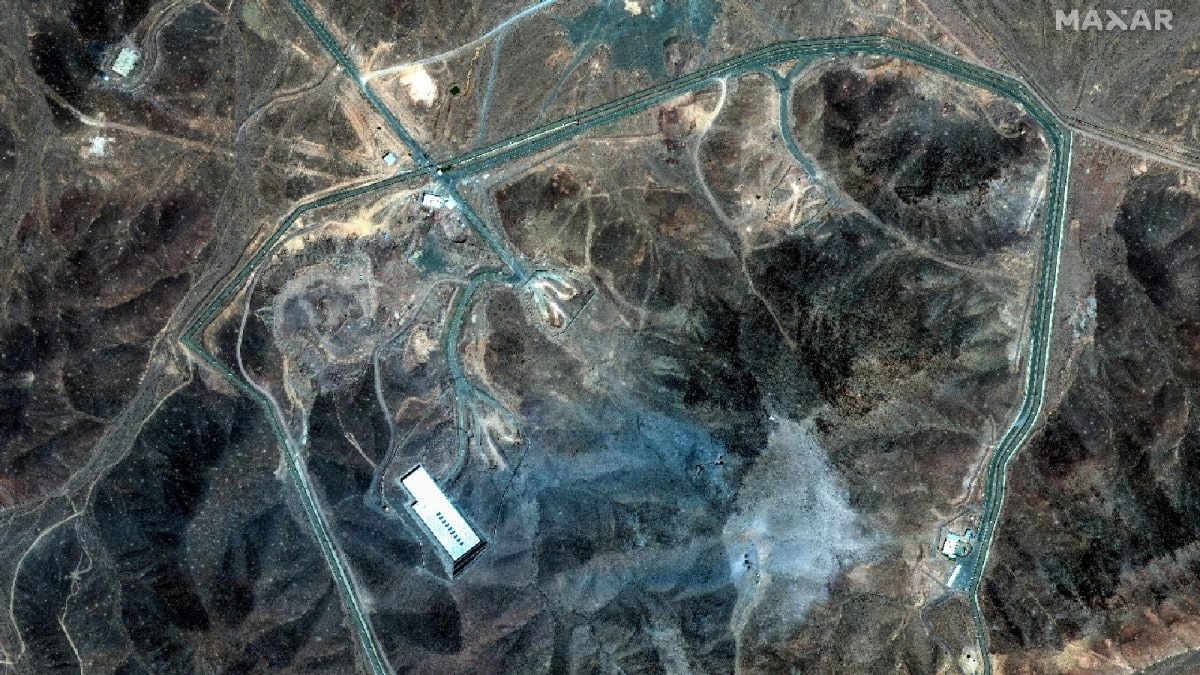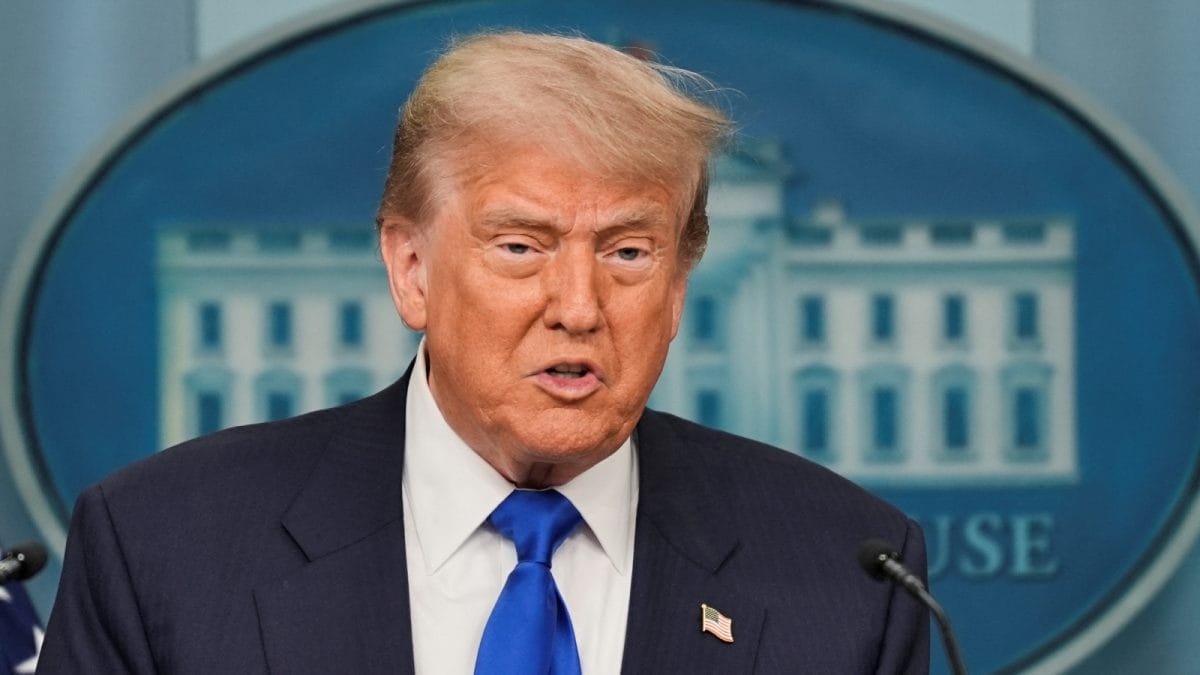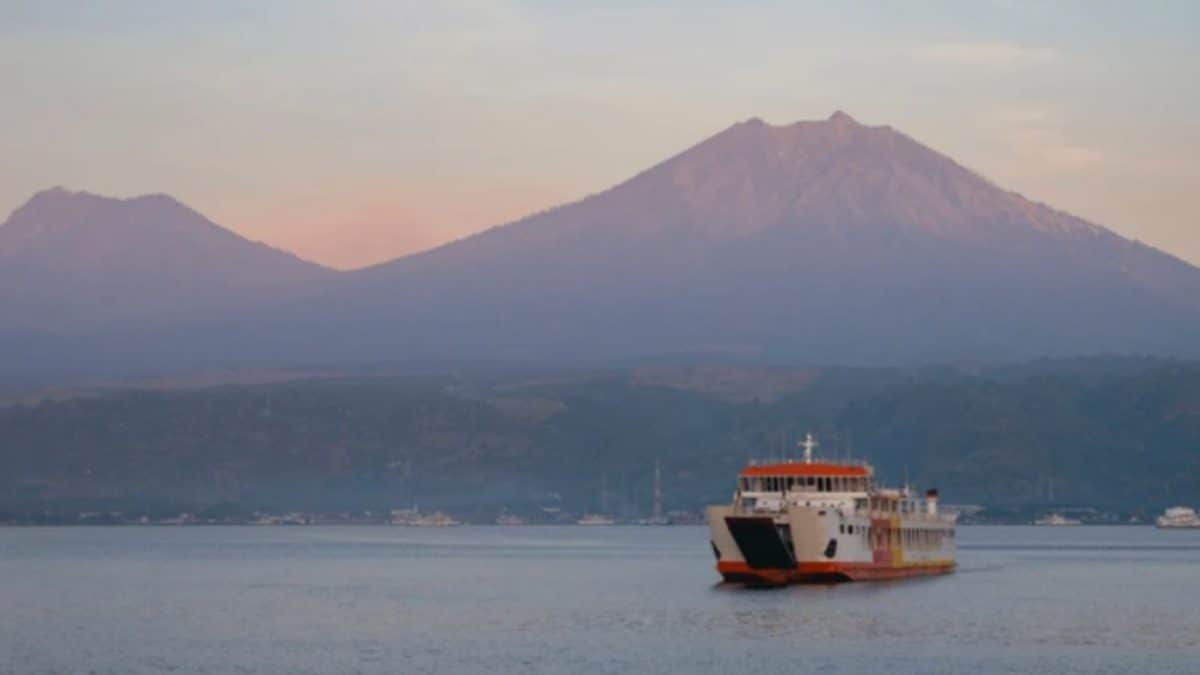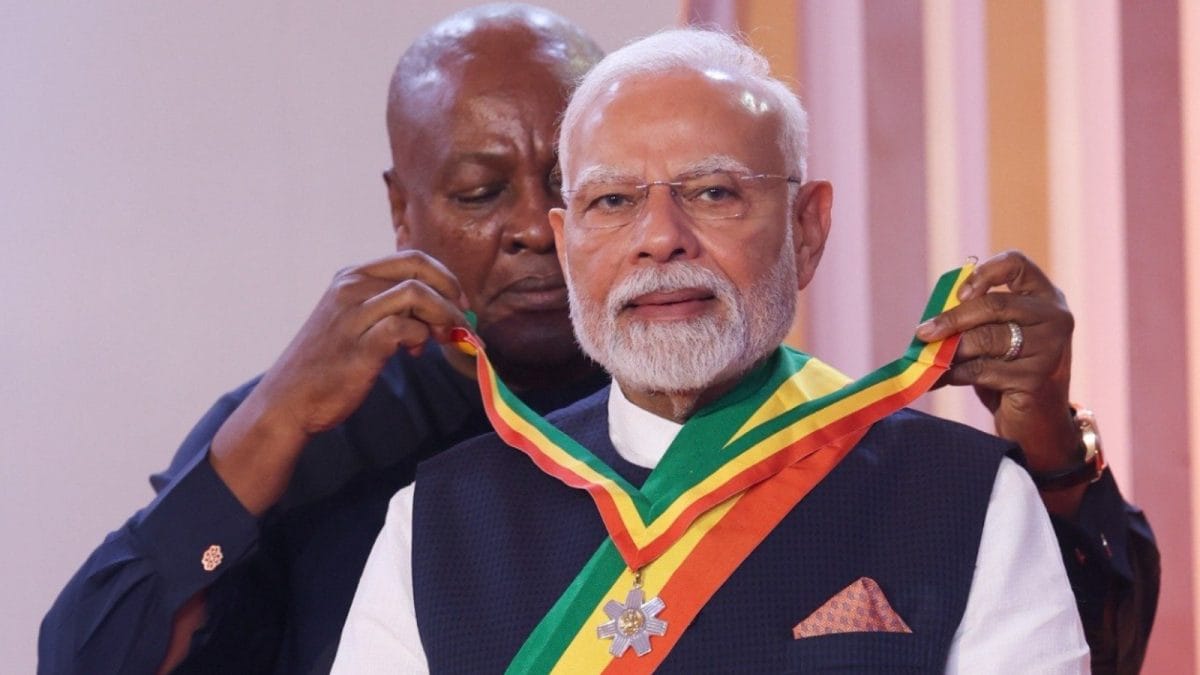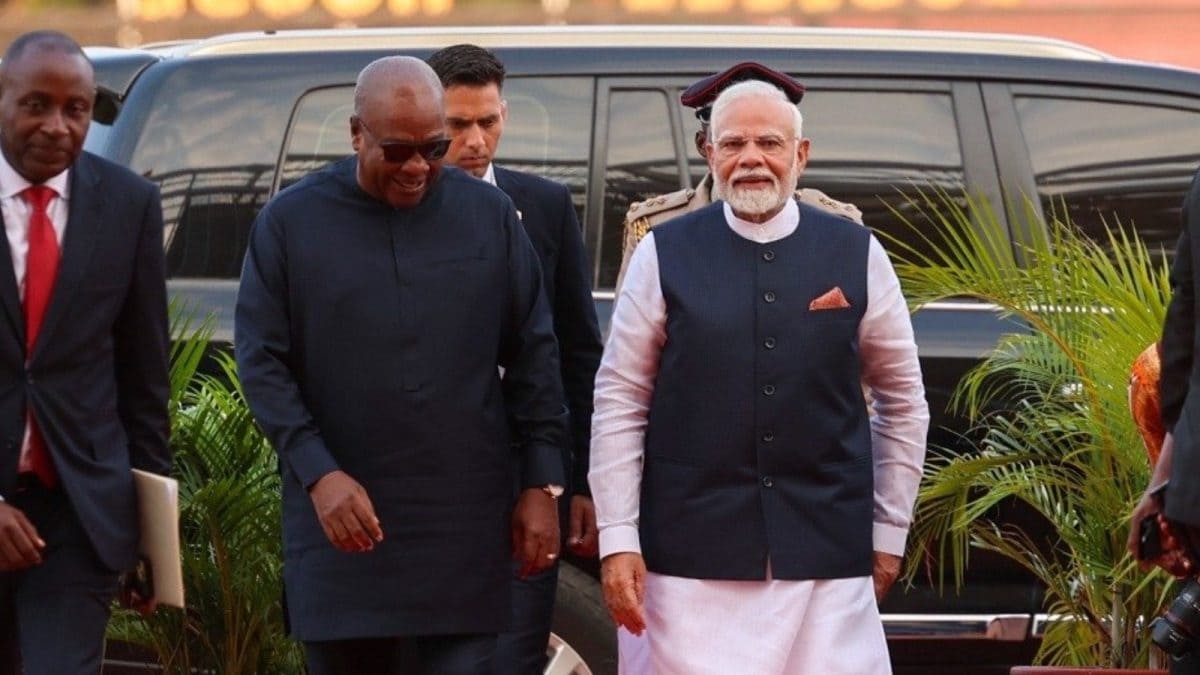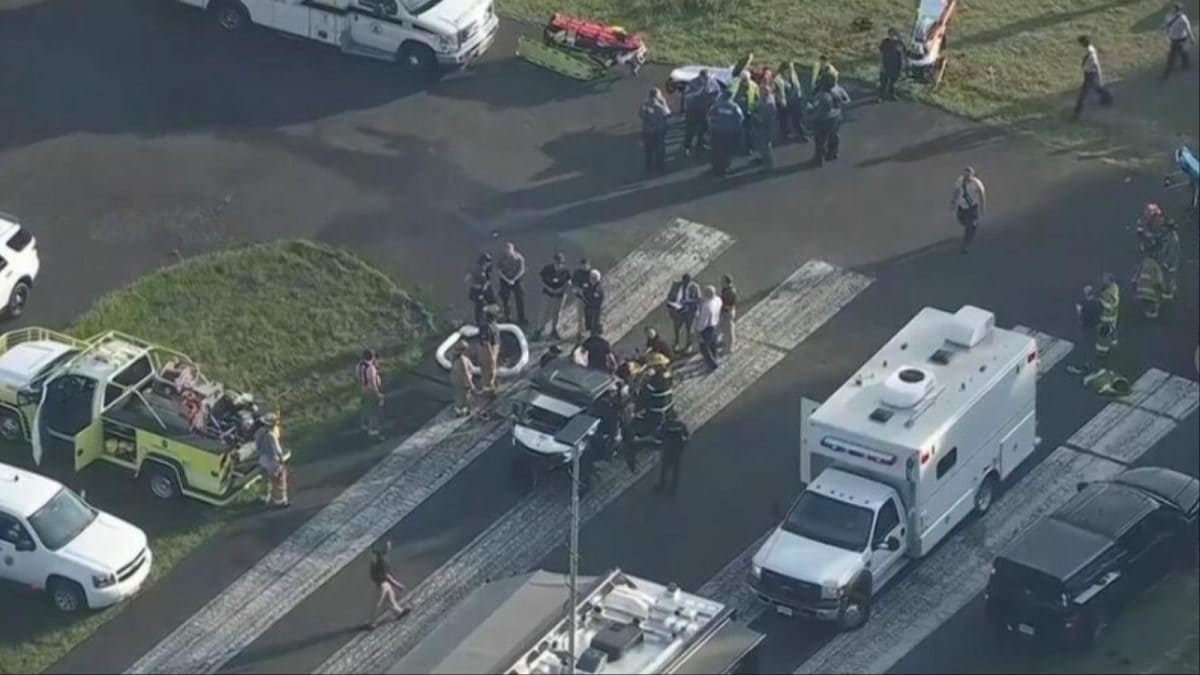
Polish presidential candidate Rafał Trzaskowski campaigning in Goleniow, northwest Poland, on Thursday Photograph: Jerzy Muszynski/EPA
Show key events only Please turn on JavaScript to use this feature
Live feed
Morning opening: Building up to Super Sunday

Jakub Krupa
Good morning, or dzień dobry, from Warsaw, Poland, where 13 presidential candidates are up very early to make the most of the last day before the “electoral silence” kicks in ahead of this Sunday’s first round of the presidential vote.
With leading contenders hitting the campaign trail around 6am local time today, it’s going to be a long day ahead for them as they hope to convince some undecided voters in what looks like an increasingly tight race.
The frontrunner, Warsaw mayor Rafał Trzaskowski, popped in to a bakery in Myśliborz, while his main rival, conservative Karol Nawrocki, went to say hi to miners. You get the idea.
I have spent the last few days here talking to voters and attending rallies by candidates ranging from far-left to far-right, and I will bring you some of what I saw and heard today and over the weekend.
The candidates have only until midnight to campaign, and they want to make every minute count.
I will bring you more updates on this throughout the day, as we build up to Super Sunday with elections not only in Poland, with Portugal set to choose its next government and a super close presidential run-off in Romania.
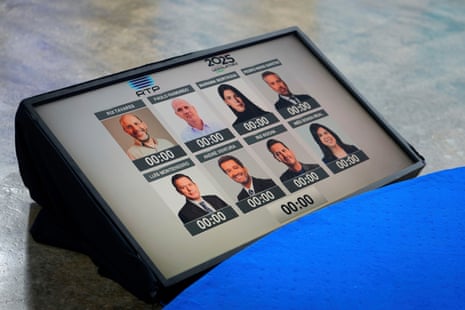
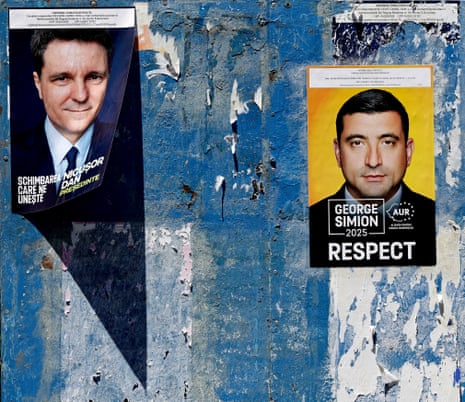
But we will also keep an eye on the European Political Community summit in Tirana, Albania, where key European leaders are expected to talk about the future of the continent. Britain’s Starmer, Germany’s Merz, France’s Macron, Turkey’s Erdogan, Poland’s Tusk, and EU’s von der Leyen and Costa are all there.
I will bring you all the key updates throughout the day.
It’s Friday, 16 May 2025, it’s Jakub Krupa here, and this is Europe Live.
Good morning.
Key events Show key events only Please turn on JavaScript to use this feature
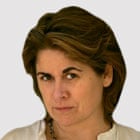
Helena Smith
Over in Tirana, the Ukrainian president Volodymyr Zelenskyy has also joined leaders attending a one-day European summit where security and defence issues are topping the agenda.
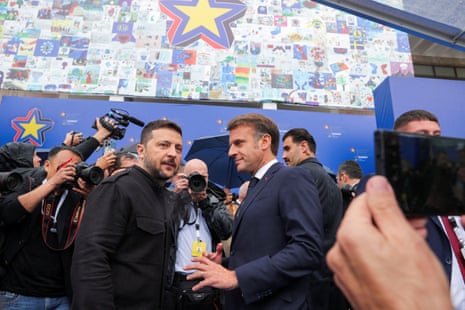
Zelenskyy, whose attendance has not been announced in advance, was seen being escorted into the summit by the country’s newly elected prime minister Edi Rama.
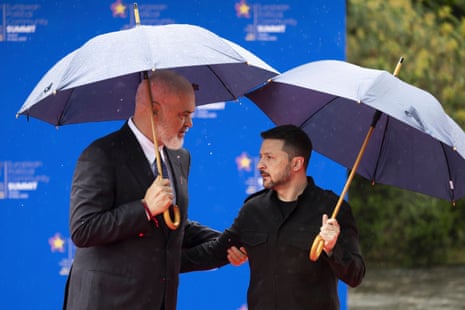
The European Political community Summit is the first major EU event to be held by the western Balkan state and comes just days after Rama won an unprecedented fourth term in office on the promise to deliver EU membership by 2030.
Rama has called the summit a tremendous source of pride for the former communist state – for decades Europe’s most isolated country under one of the most brutal regimes on the continent – saying it will provide “an inspiration and motivation to continue further on.”
Rama’s joy about hosting the event is perhaps best captured by the fact that he is wearing shoes with the logo of the summit on them…
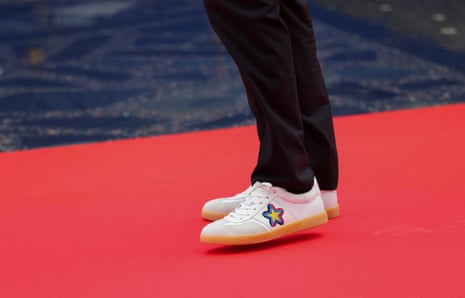
Rama, the son of a sculptor and a painter himself before he ventured into politics, is an unorthodox figure in the world of European statecraft, known as much for his blunt speech as humourous approach to peers.
Asked on Wednesday, standing next to Britain’s visiting prime minister, Keir Starmer, whether he would be willing to enter a migration deal with the UK, the towering 6 ft 7 leader, a professional basketball player in his youth, shot back saying:
“We have been asked by several countries if we were open to it and we said no, because we are loyal to the marriage with Italy and the rest is just love.”
He may have been thinking of this when he jokingly greeted Italy’s Giorgia Meloni on bended-knee on the red carpet. However, it should be said that the off-shore agreement Albania has sealed with Italy has been replete with teething problems.
So far most comments on arrivals in Tirana, where European leaders meet for a gathering of the European Political Community, are about Ukraine, pressure on Putin, and potential further sanctions on Russia, so you can follow the latest on our Ukraine blog here:
But, but, but.
There is a picture that we just have to bring you here, and it’s showing Albania’s prime minister Edi Rama’s unusual welcome gesture towards his Italian counterpart, Giorgia Meloni, as he kneeled on the red carpet for her.
According to La Repubblica, Meloni reacted with amusement saying: “Edi, come on, now!” and laughing, before jokingly saying “he’s only [doing] this to [appear as] tall as me.”
Rama did the same when the pair met in Abu Dhabi in January, as he wanted to mark Meloni’s birthday so it could just be a play on that, but… still, amusing!
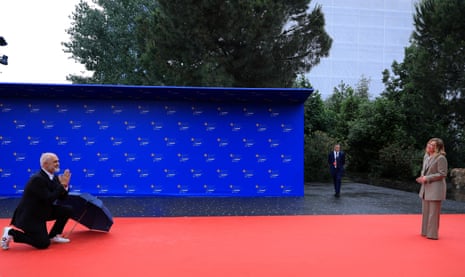

Meet the key players – Romania
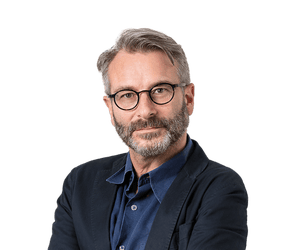
Jon Henley
In Romania, an ultranationalist, EU-critical Trump admirer is in a run-off against a centrist independent in a vote that analysts have called the most important in the country’s post-communist history.
George Simion, 38, who sports Maga caps, promotes a socially conservative agenda and wants the “Melonisation” of Europe and to halt military aid to Ukraine, won the first round comfortably with 41% of the vote, nearly double the score of his rival.
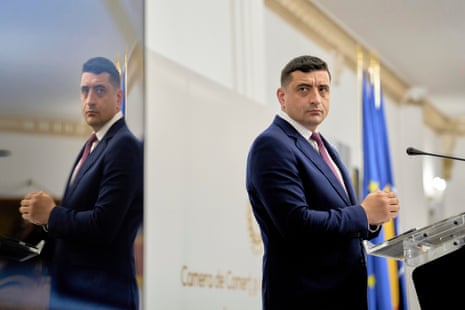
The second-placed Nicușor Dan, the 55-year-old mayor of Bucharest, has cast the runoff as a fight between “a pro-western and an anti-western direction for Romania”. Polls show the gap between the two narrowing, with one putting them neck and neck.
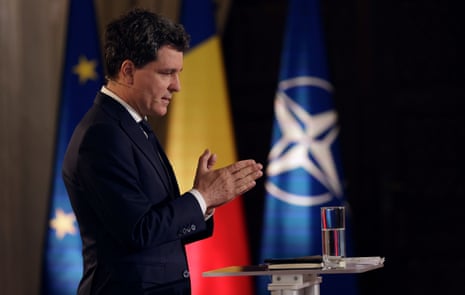
Riding a wave of voter frustration with Romania’s mainstream parties, Simion has promised, if he wins, to appoint as prime minister Călin Georgescu, the winner of last November’s cancelled vote.
Results of the first round of presidential vote in RomaniaAnalysts have said a Simion victory could lead to the country swinging sharply to the right. A confidence-and-supply deal between Simion’s AUR party, the second largest in parliament, and Coalacu’s Social Democrats is seen as a post-vote possibility, as are snap elections.
The ballot is being closely watched by the EU, which could do without another disruptor in the region alongside Hungary and Slovakia. Also interested are nationalists – including in Washington – who accused Bucharest of trampling on democracy after the original vote was cancelled and Georgescu barred from standing in the rerun.
Portugal's far-right leader Ventura hospitalised
Sam Jones
Far-right Chega’s leader André Ventura has been taken to hospital after another collapse during a rally days before the country votes in its third snap election since 2022.
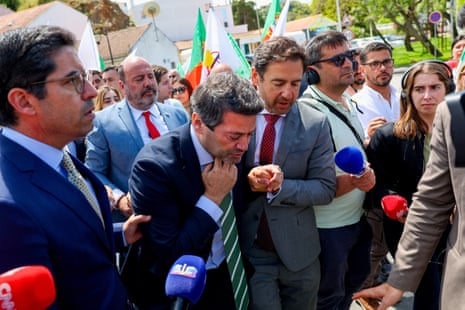
Ventura, whose brash, blunt leadership style has helped make the populist, anti-immigration party Portugal’s third biggest political force, was taken ill at an event in the southern town of Odemira on Thursday, two days after a similar episode.
Videos from the rally showed Ventura, 42, grabbing his chest and trying to undo his tie before falling into the arms of aides who carried him away. He was taken to a local clinic and then transferred to a hospital in Setúbal, near Lisbon, to undergo a medical procedure.
Ventura had been discharged from hospital in Faro on Wednesday after his previous collapse. The hospital said he had had an oesophageal spasm caused by gastric reflux and high blood pressure.
Chega, which has campaigned on a promise to clean up Portuguese politics at the same time as increasing its rhetoric against the Roma population, has been hit by a series of damaging allegations relating to some of its members over recent months.
In January, Chega expelled one of its MPs from the party after he was accused of stealing suitcases at several airports. Another party member was caught drink-driving the same month, while a third has been charged with paying for oral sex with an underage male, who was 15 at the time.
Meet the key players – Portugal
Sam Jones
Portugal is heading to the polls for its third snap general election in three years. The centre-right prime minister, Luís Montenegro, triggered Sunday’s vote in response to growing questions over his family’s business activities.
Montenegro, the leader of the Democratic Alliance (AD) platform that has governed Portugal since its narrow victory in last year’s election, has come under growing scrutiny relating to a data protection consultancy that he founded in 2021 and which he transferred to his wife and sons the following year.
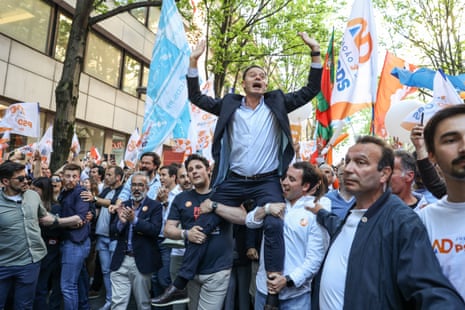
Faced with questions over possible conflicts of interest, Montenegro – who has denied any wrongdoing or ethical breaches – staged a confidence vote in his administration in March, saying he wanted“to end the atmosphere of permanent insinuations and intrigues”. But he lost the vote and a fresh election was called.
Recent polls suggest a similar result to last time, putting the AD on about 33%, the opposition Socialist party (PS) led by Pedro Nuno Santos on 26% and the far-right Chega party of André Ventura on 17%.
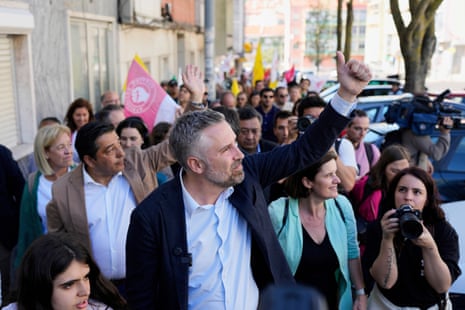
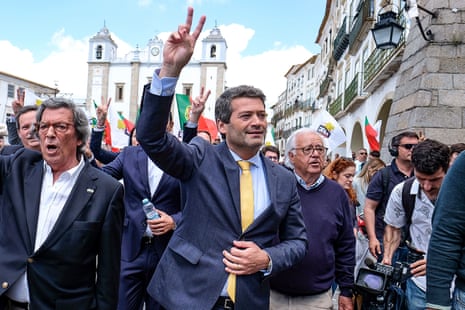
Montenegro appears likely to once again fall short of a majority – even if he strikes a deal with the small Liberal Initiative party, which is polling at about 6% – and will struggle to govern, especially if the PS makes good on its threats to oppose his legislative agenda.
Although Montenegro has maintained his blanket ban on any deals with Chega, his government has been accused of pandering to the far right after it announced the expulsion of 18,000 irregular migrants during the election campaign. There has also been speculation that Montenegro’s own Social Democratic party could replace him with someone more amenable to working with Chega should he fail to deliver on Sunday.
The state of polls in PortugalMeet the key players - Poland

Jakub Krupa
Let’s take a quick look at the latest polls in Poland, focusing on the two leading contenders – centrist Warsaw mayor Rafał Trzaskowski of the ruling Civic Coalition and his conservative rival, Karol Nawrocki, formally independent, but endorsed by the populist-nationalist Law and Justice party that ran the country between 2015 and 2023.
Remember: it’s the first round vote this Sunday, meaning that unless someone gets over 50% (which they won’t get), the top two go through to the run-off in two weeks’ time.

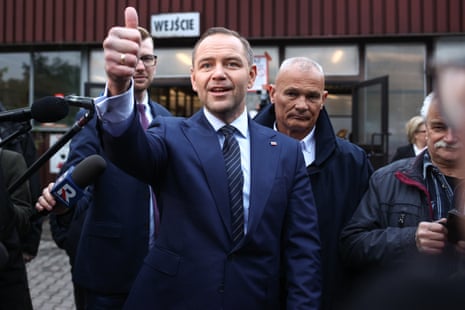
Very unusually for Poland, it looks likely they could come at under 60% in combined vote share this year – way below the 70-80% in previous elections, showing the levels of frustration with both parties that dominated the country’s political landscape over the last 20 years.
This creates more space for other candidates, including libertarian far-right Confederation’s Sławomir Mentzen, who even briefly challenged Nawrocki to second, but has faded in the last few weeks.

Outside the top 3, you will see a close battle for the fourth between the surging Adrian Zandberg of the leftist Razem (Together) party, centre-right Szymon Hołownia of Poland 2025, and Magdalena Biejat of the New Left (Nowa Lewica), the left wing of the ruling coalition. They are all polling somewhere between 5 and 8%, and their endorsements could play a significant role in the run-off.
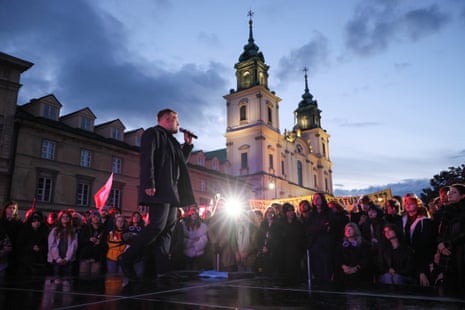
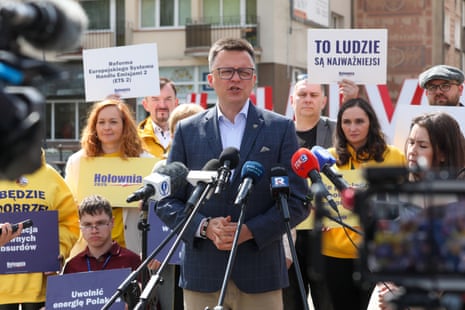
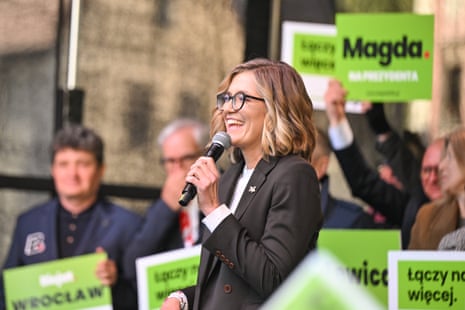
The full 13-name lineup also features some fringe figures such as a nationalist far-right leader Grzegorz Braun, under probe for putting out Hanukah candles in the Polish parliament with a fire extinguisher and a post-communist left veteran Joanna Senyszyn.
Ukraine dominates headlines in Europe
Before we dive into Poland, Portugal and Romania any further, let me bring you some headline updates from across Europe, with lots of understandable focus on Ukraine -
Volodymyr Zelenskyy has sent a delegation to Istanbul for peace talks with Russia, paving the way for the first direct negotiations between the two countries since March 2022 – although Washington has warned that no breakthrough is likely unless Donald Trump and Vladimir Putin agree to meet.
Nato secretary general Mark Rutte praised Ukraine for attending the talks, and said it turns the attention to Putin as “all pressure is on him” to make progress in the peace process.
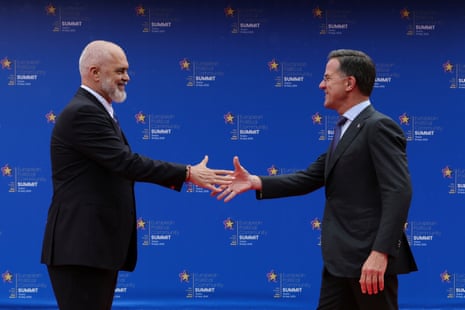
EU foreign policy chief Kaja Kallas said this morning that Russia was “clearly” not working for peace with Ukraine, as she urged leaders attending the European Political Community summit in Albania to ramp up the pressure on Russia to maintain its “political isolation.”
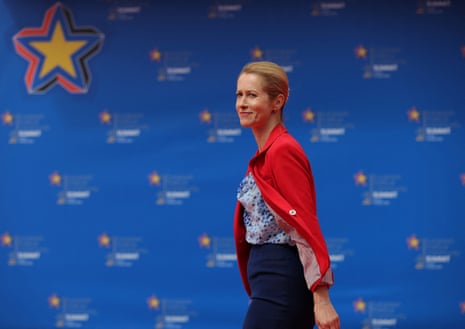
You can follow our separate live blog on Ukraine here:
Morning opening: Building up to Super Sunday

Jakub Krupa
Good morning, or dzień dobry, from Warsaw, Poland, where 13 presidential candidates are up very early to make the most of the last day before the “electoral silence” kicks in ahead of this Sunday’s first round of the presidential vote.
With leading contenders hitting the campaign trail around 6am local time today, it’s going to be a long day ahead for them as they hope to convince some undecided voters in what looks like an increasingly tight race.
The frontrunner, Warsaw mayor Rafał Trzaskowski, popped in to a bakery in Myśliborz, while his main rival, conservative Karol Nawrocki, went to say hi to miners. You get the idea.
I have spent the last few days here talking to voters and attending rallies by candidates ranging from far-left to far-right, and I will bring you some of what I saw and heard today and over the weekend.
The candidates have only until midnight to campaign, and they want to make every minute count.
I will bring you more updates on this throughout the day, as we build up to Super Sunday with elections not only in Poland, with Portugal set to choose its next government and a super close presidential run-off in Romania.


But we will also keep an eye on the European Political Community summit in Tirana, Albania, where key European leaders are expected to talk about the future of the continent. Britain’s Starmer, Germany’s Merz, France’s Macron, Turkey’s Erdogan, Poland’s Tusk, and EU’s von der Leyen and Costa are all there.
I will bring you all the key updates throughout the day.
It’s Friday, 16 May 2025, it’s Jakub Krupa here, and this is Europe Live.
Good morning.
Explore more on these topics

 1 month ago
1 month ago
